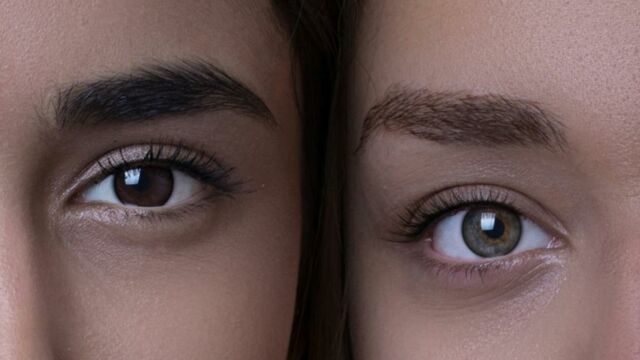The NHS recommends that you should get your eyes tested every 2 years. It's fair to say that a lot of us struggle to hit this mark, especially if we don't have any problems with our vision. However, even if you have perfect eyesight, your eyes themselves can tell a lot about your health and longevity. A new study is suggesting that a simple eye test could predict how long you live. The research, which has been described as the first of its kind, could be useful in determining the impact of certain diseases on a person’s longevity.
Discover our latest podcast
Eyes and lifespan
Problems in the eyes are not always as obvious as they were for this man, who suffered a terrible nail gun accident. It has long been established that cells in the retina deteriorate as you get older, an example being the development of glaucoma which is common among older people. However, the paper, published in the British Journal of Ophthalmology found that people with retinas that are older than their actual age have a higher likelihood of dying within the next decade. Study co-author Dr. Mingguang He from the Center for Eye Research Australia explained:
The retina offers a unique, accessible 'window' to evaluate underlying pathological processes of systemic vascular and neurological diseases that are associated with increased risks of mortality.

Eye age gap
To arrive at this conclusion, the team of international researchers analysed more than 130,000 retinal images from samples given by people participating in the UK BioBank, a long-term government study of over 500,000 UK participants between the ages of 40 and 69, according toCNN.
Using a form of machine learning model, researchers were able to estimate the 'retinal age gap' between the actual biological health of the eye and the person’s age since birth. Large gaps in retinal age were associated with a 49 to 67 percent higher risk of death from any cause other than cardiovascular disease or cancer. The researchers wrote in their findings:
Our novel findings have determined that the retinal age gap is an independent predictor of increased mortality risk, especially of non-cardiovascular disease/ non-cancer mortality. These findings suggest that retinal age may be a clinically significant biomarker of ageing.
Eyes and health
Indeed, this is not the only issue related to eye health that you should be aware of. Eye infractions, for instance, could lead to a bigger health condition. These 'eye strokes' can lead to blindness and also 'greatly' increase the 'risk of stroke and heart attack', according to 24vita. Your eye colour can also play a part, given that different shades are more or less susceptible to various diseases.
Read more:
⋙ Poor vision: It could mean you have higher risk of having dementia, as per study
⋙ This man was shocked to discover he had a wood splinter in his eye for 15 years
⋙ Doctors couldn't believe what they pulled out of this woman's eye
Sources used:
Eat This, Not That: This Simple Eye Test Can Reveal How Long You'll Live
CNN: Your eyes hold the key to your true biological age, study finds
British Journal of Ophthalmology: Retinal age gap as a predictive biomarker for mortality risk















